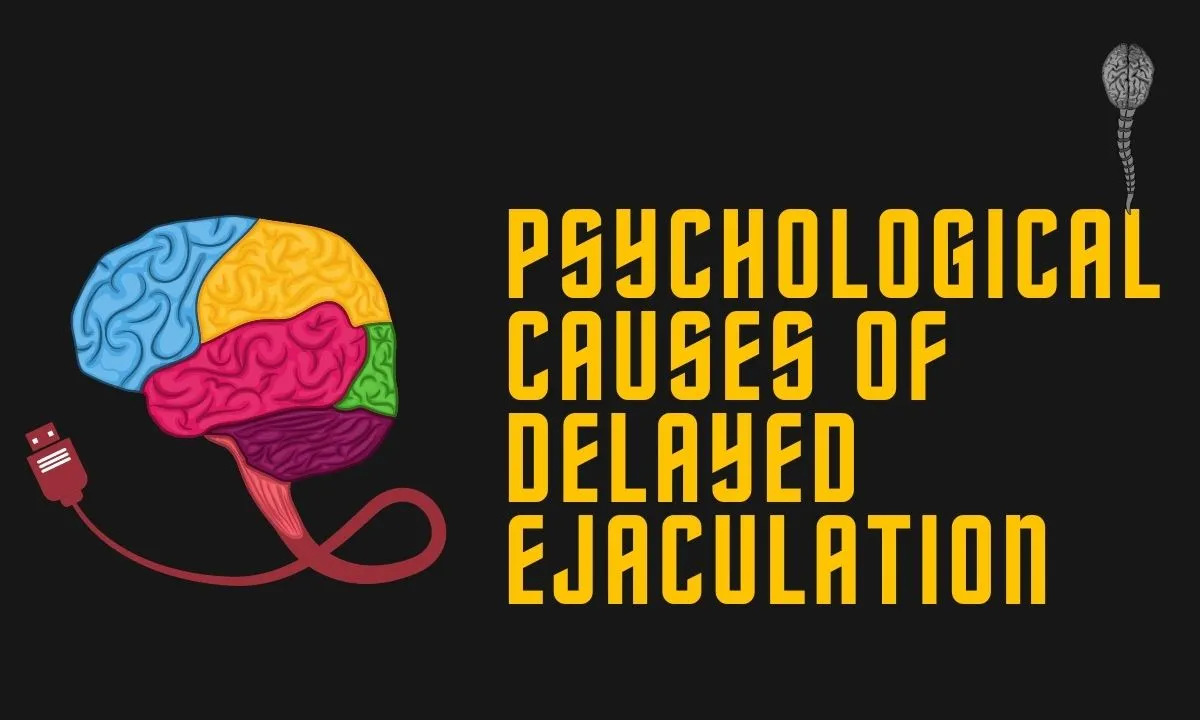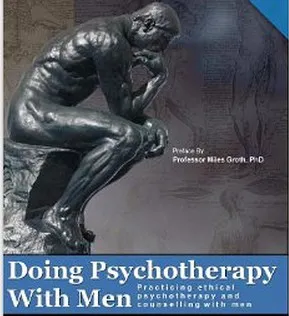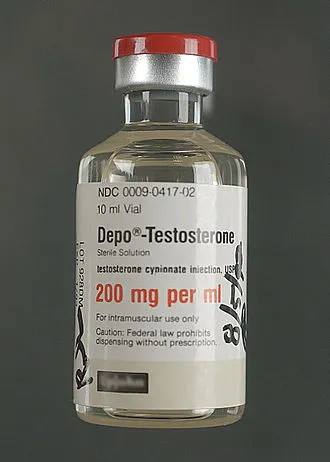How to Overcome Delayed Ejaculation

If you can’t ejaculate during sex or masturbation, help is at hand!
Yes! I really mean that.
You can easily change things so you can ejaculate normally during sex. No matter what’s holding you back right now, no matter how long you make love without coming, no matter what stimulation you need, and no matter what it currently takes for you to get to your climax, you can discover how to enjoy normal intercourse in a matter of weeks.
Of course everyone knows about premature ejaculation, but not so many people know about delayed ejaculation, a surprising fact, because it affects about one man in twelve. Yes, that many.
So you’re not alone. Not by a long way. And it doesn’t matter if the cause of your delayed ejaculation is traumatic masturbation in a prone position when you were a teenager, or not being aroused when you have sex, or relationship difficulties with your partner, or the simple fact that you prefer sex with yourself to sex with someone else.
The Difficulty Of Being Unable To Ejaculate
 Delayed ejaculation can really be a challenge for a couple.
Delayed ejaculation can really be a challenge for a couple.
Being able to climax is one of the most important things during sex as it provides physical pleasure to both the man and the woman. And, as you may know, it can provide deep emotional satisfaction and fulfillment too.
Sure, it’s important for a woman that her man finds her sexually attractive. And for a man, it’s extremely important to be able to get an erection in a sexual situation.
But for both men and women, it’s normal, natural and satisfying when lovemaking ends with the man reaching his climax while he makes love to her. In other words, lovemaking ends naturally when the man comes inside his partner, if that’s what they both wish.
So, if you’re a man who can’t ejaculate - or you’re having trouble ejaculating - during sex, it will no doubt be a great relief to you to know that there is a practical cure for delayed ejaculation (that’s the medical name for this problem).
But just why is ejaculation so important?
Well, for a woman, having a man come inside her vagina is at the very least proof of her sexual desirability. And for a man, it’s the culmination of the most powerful human instinct as well as being very satisfying and pleasurable.
The simple fact is this: it makes a man feel very masculine, at a very profound level. It makes a woman feel desirable and gives her profound emotional fulfillment. Therefore, when a man cannot reach the natural conclusion of lovemaking easily, both he and his partner suffer.
In short, delayed ejaculation can be very shaming, and it can reduce a man’s self-esteem and reduce his sense of himself as a sexual male. It also seems hard to understand: for the majority of men, not being able to ‘release’ naturally during intercourse is unthinkable. Indeed, the majority of men have a problem delaying their climax for a reasonable time.

And there are other things associated with this condition: the sense that you can’t father a child; the feeling that somehow you’re, well, not exactly impotent, but perhaps somehow less masculine than other men; that you lack something as a sexual man if you are unable to ejaculate.
This is definitely the reason why the problem is so little talked about. A lot of men are simply ashamed of the fact they cannot come with their partners. Fortunately, a cure is readily available, and while it may take a little digging to get down to the cause of it, in the majority of cases normal “service” can be resumed without too much difficulty.
Definition of Delayed Ejaculation
A modern definition agreed upon by therapists who deal with delayed ejaculation (also known as retarded ejaculation or DE for short) is:
Continuing difficulty or delay in reaching the point of ejaculation, or the complete absence of ejaculation, even when a man has had enough sexual stimulation to bring him to climax in normal circumstances, and when the man wishes to achieve orgasm and ejaculate during sexual activity.

Over the years, delayed ejaculation has been named ejaculatory incompetence, anejaculation, ejaculatory over-control, and male orgasmic disorder, although this latter term has not found favor since it refers to the mental and emotional sensations of orgasm rather than ejaculation.
These sensations are the product of brain activity, whereas difficulties associated with ejaculation are more related to the failure or inhibition of the reflex of ejaculation - which is, or ought to be, a simple response to sexual stimulation in the nerve pathways of the spinal column.
As you can see, the definition of DE given above includes an element of subjective judgment about what is regarded as sufficient sexual stimulation to take a man to his sexual climax.
However, most men who have DE will be all-too-well aware of that fact. Most of them will be experiencing distress because of it, and so will most of their partners!
Generally, retarded ejaculation is incomprehensible to the man and his partner. Usually it makes for a relationship in which tension and frustration are high, where communication is low, and where the man tends to ignore the problem until the pressure is too great to do so any longer.
Often that is when the relationship is on the point of breaking up or the woman wants to become pregnant. (Very occasionally I have heard men say that they appreciate delayed ejaculation because they can last long enough during sex to be able to take their partners to orgasm. This is not common - often the woman is even more frustrated than the man… not to mention sore, and feeling unattractive and let down…)
Prevalence Of Delayed Ejaculation
It’s not easy to be sure of how common DE is among men in general, because good, reliable research is lacking.
One thing that’s for sure is that the problem is much more common than lots of people have believed for a very long time: surveys on the internet (and therefore confidential) seem to suggest that delayed ejaculation occurs in about 12% of the male population, a figure which contrasts dramatically with the 4% or so identified by pioneer sex researchers Masters and Johnson in the years just after the second world war.
With increasing knowledge, and more research, and possibly better reporting, estimates of how frequently men have problems in this area have gradually increased.
Part of the problem here is that men are very reluctant to talk about sexual problems. This seems to be mostly because they feel ashamed about having sexual problems like premature or delayed ejaculation - shame - and see it as “unmanly” or “unmasculine”.
Clearly the subject needs to be discussed more openly and freely so that the negative connotations can be dispelled.
The Physical Causes Of Delayed Ejaculation (DE)
Men and women in a relationship where the man has delayed ejaculation often find the problem rather distressing. One of the key things is to identify the cause of the problem, but the reality is that this is not always very obvious. Broadly speaking, of course, causation can be divided into two categories: physical, and the psychological.
The physical causes are rather varied, and include fluctuations in, or abnormal, hormone levels caused by problems such as hypogonadism, excess prolactin, and thyroid issues.
It’s been speculated that one of the causes of delayed ejaculation is a lack of sensitivity in the penis, although there is no evidence to suggest this is true; there is also a possible failure of the neural reflex that triggers ejaculation, although again, evidence is lacking.
Drugs, especially antidepressants and those used to control high blood pressure, are known to be a major cause of ejaculatory dysfunction in men.
The diagnostic and statistical manual of mental disorders DSM IV TR Diagnostic and Statistical Manual of Mental Disorders (DSM-IV-TR) classifies delayed ejaculation as a sexual dysfunction, although it has described it as a deficiency of orgasm which is manifestly incorrect since it is a failure of the ejaculatory reflex.
Nervous Pathways Associated with Ejaculation
Even when a man who is experiencing delayed ejaculation has enjoyed sufficient sexual stimulation that in the “average” man would trigger orgasm and ejaculation, he will simply not be able to achieve climax.
Conventionally, of course, climax is divided into two parts: orgasm and ejaculation.
We speak as if the two are very closely linked, so that a man who fails to reach orgasm generally won’t ejaculate, and vice versa. This is a working assumption that is adequate for an assessment of the problem, although it’s technically incorrect since the two events are both mediated by different parts of the nervous system, and they can both occur independently of each other.
To be more specific, orgasm is associated with emotional sensations and feelings in the mind, which are interpreted as extremely pleasurable. There may also be muscular contractions and spasms in the body. The reason for this is the release of oxytocin and endorphins which occurs at the moment of orgasm.
Some men with delayed ejaculation (aka retarded ejaculation) may find that they can only reach orgasm through stimulation by their own hand or a sex toy during masturbation, while others may find that they can occasionally reach orgasm during intercourse with a partner. It’s hard to understand how such problems could arise, but understanding that orgasm and ejaculation are actually separate processes can help clarify it.
As we mentioned before, orgasm is an experienced of the mind which is interpreted by the brain as a very pleasurable experience. Ejaculation is an unconscious reflex response which is triggered by sufficient sexual stimulation being applied to the genital region, so that the nerves which are responsible for the reflex of ejaculation reach a threshold of stimulation that triggers the emission and release of semen.
Clearly the phenomenon of dry orgasm — which means an orgasm where no semen is released — has a bearing on delayed ejaculation. The question that arises from this is why men who have this problem don’t usually experience the sensations of orgasm as we know that it’s not necessary for the ejaculatory response to take place before a man can move into the orgasm phase of his sexual response cycle.
Of course all men experience orgasm differently, and it’s true that even in the same man the experience is different from time to time. Nonetheless, we know that orgasm generally involves similar features in all men: it involves contraction of certain body muscles, including the pelvic musculature and other body muscles, that have built up tension during the excitement phase of sexual arousal. All of this tension is released in the moment of orgasm.
All of these sexual responses, including the ejaculatory response, is mediated by the interaction of the sympathetic and parasympathetic nervous system. The sympathetic and the parasympathetic. What we call the sympathetic nervous system is associated with activity, while parasympathetic nervous system is associated with relaxation and recovery.
The interplay of these two involuntary nervous systems is highly relevant to any discussion of the etiology of DE. For example, in order for a man to develop an erection the smooth muscle fibers of the internal cavities of the penis have to relax: only then can blood flow into the penis in sufficient quantities to generate an erection.
The control of this process is under a complicated network made up of the nervous system, the circulatory system, and hormonal influences, all of which are initially dependent on the relaxation of these muscle fibers induced by the parasympathetic nervous system.
However both orgasm and ejaculation are controlled by the sympathetic nervous system, as is the phenomenon of relaxation and recovery which is commonly become known as the “afterglow”.
Ejaculation itself is divided into two parts, emission, which is under the control of parasympathetic nervous system, where seminal fluid is released from the seminal vesicles into the base of the urethra in preparation for ejaculation proper, which is controlled by the sympathetic nervous system.
It’s important to note that these generalizations are indeed just that: there’s no better example of this than the fact that a man can reach orgasm during sleep when no physical sexual stimulation has taken place.
Psychological Causes Of Delayed Ejaculation

In terms of the psychological aspects of retarded ejaculation, the most likely, indeed probable, explanation for a man’s ejaculatory dysfunction are historical sexual trauma.
We’re talking abut things like sexual abuse, repression of sexual urges caused by a childhood environment in which sex was regarded as taboo or dirty or shameful, and in which a man grew up with a psychological complex around sexual shame or guilt.
It’s also possible that an abusive relationship with women in early childhood could be responsible for a man’s sexual dysfunction in later life: an interesting observation about men with these problems is that they very often do not connect their historical experience with their current sexual difficulties.
Only during psychotherapy or counseling will the connection between an inability to ejaculate, vaginal aversion, and other sexual dysfunctions, including premature ejaculation, become clear. In my experience as a therapist, one of the things I’ve often found associated with ejaculatory difficulties is a high level of suppressed anger or even rage against women, and particularly in the case of premature ejaculation, a high level of anxiety and fear around sexual activity.
It’s also been proposed that one of the causes of delayed ejaculation is a man’s fear of making his partner pregnant.
As we delve into the psychological realm, it becomes clear that a number of psychodynamic explanations have been put forward which are plausible but are incapable of systematic scientific proof.
These include the suggestion that delayed ejaculation might be passive aggressive hostility, where the withholding of semen penalizes the woman, punishing her for some transferential issue which originated elsewhere.
One of the best ways of identifying problems like this is in counseling or therapy when they can be teased out gradually over a period of time. The good news however, is that there are treatment approaches which do not require lengthy counseling, but which address the problem in behavioral terms.
As we know, many of the men who experience retarded ejaculation have a low level of sexual self-confidence, or perhaps do not regard themselves as particularly good lovers. This can be both cause and effect of the problem. It’s entirely possible that a man experiences DE with a partner because he has issues caused by emotional conflicts about sex in general and women in particular.
However, when ejaculation only happens during masturbation, it’s common for a man to have the problem because he’s trained himself to achieve orgasm and ejaculate in an idiosyncratic fashion, one which usually does not involve touching the penis, but requires harsh and fast thrusting against solid objects such as the mattress of a bed. The good news, again, is that all of these problems can be dealt with quite readily with a treatment program such as the one on this website.
Hypnosis May Offer a Solution for Delayed Ejaculation
It’s important to emphasize also that retarded ejaculation is not the product of any kind of personality defect or abnormality. It’s actually a very common and normal condition that I think can sometimes result from a harsh, punitive, or unfavorable environment during childhood and adolescence.
That’s why counseling is helpful: it helps to raise man’s self-esteem and to enable him to establish a better relationship with his partner. Regrettably most men with the condition are too embarrassed to seek help, which is another reason why we’ve taken the time to write a self-help program which can be used at home.
Generally, depression, anxiety, perhaps a fear of pregnancy, traumatic sexual encounters including sexual abuse, and repression of sexual urges and interests are the most common causes, due to a very repressive sexual attitude in a man’s family.
Other ejaculation problems include retrograde ejaculation so this must be ruled out in a diagnosis. Having said that, RE occurs regardless of intelligence, age, race and sexual orientation.
Is Sex Therapy The Only Realistic Treatment For Delayed Ejaculation?

It’s interesting to look at the views of sex therapists and medical men on the subject of delayed ejaculation.
Dr Stanley Ducharme - a sex therapist - makes the point that different people may have very different ideas about what constitutes an ejaculation “disorder”. I mean, would five minutes constitute a disorder for a man who was used to ejaculating in two minutes?
Ask it another way: how long does the time between penetration and ejaculation — otherwise called the ejaculatory latency period — have to be before you can say that a man’s got “delayed ejaculation”?
You can get an idea by looking at the distribution of ejaculation time between penetration and ejaculation in the whole population. Here it is.

As you can see, the average ejaculatory delay is about 4 minutes. In theory, anything over that is slow. But really, most men wouldn’t start worrying until 0 minutes had passed.
You might wonder if that’s an important question. I’m quite sure that when you’re having trouble ejaculating, you’re not really looking for a definition. You know you’ve got a problem, and you want it solved.
But the thing is, there is an interesting question there. Some couples might be very satisfied with five minutes of intercourse, while others would expect twenty minutes as a matter of course.
So if a man in the first group found himself thrusting for twenty minutes without spurting inside his partner, would he have delayed ejaculation? The answer is, maybe, maybe not. Some answer, eh? Well, I think the key factor here is control. Or choice. Or both.
You see, when a man doesn’t have the ability to control when he ejaculates, he is at the mercy of his body: coming too fast, or not coming fast enough, if he has no choice in the matter, he has a problem.
So with delayed ejaculation — aka retarded ejaculation — a man is having trouble reaching the point of orgasm and ejaculation during intercourse. Clearly it’s important to know if he is having the same problem during masturbation, and it might even be important to know if he’s having a problem with all his partners, or just with one specific one.
You might also want to establish, if you were talking to this man as a therapist, whether DE had just started being a problem recently, or he’d had it all his life.
You see, all of these things give us a clue about the origin of his “ejaculatory dysfunction”.

And that matters, because a lot of men come to treatment only after they’ve really begun to suffer in some way: that might be getting pressure from a partner, or it might be the fact that a man has finally woken up to the fact that he is a “sexual failure” in someone’s eyes (his own, his partner’s, society’s?).
Or perhaps he’s just decided that his inability to shoot his load is just not good enough, and he’s now decided he wants to enjoy his biological birthright: sexual pleasure when he’s with a woman (or a man, if that’s what rocks his boat).
Arriving At The Port Before Setting Sail
Now, assuming that a man has come to treatment because the pressure of retarded ejaculation has somehow become too much, what needs to happen?
The most successful approach by far is to talk to both the man and his partner. You see how this means that delayed ejaculation is a couple’s problem, not the man’s problem alone?
If the man comes for treatment on his own, then his partner’s frustration and lack of understanding about what is going on may mean the problem continues unchanged. The point is, if he doesn’t have the support of his partner, the pressure and stress that he may get from her (him, sometimes) can make it extremely difficult for him to successfully use any kind of treatment successfully.
And it’s important that retarded ejaculation is sorted out: that’s because any kind of ejaculation problem can have a massive effect on self-esteem, in particular making a man feel like he’s a sexual failure. He may feel he doesn’t have much to offer in a relationship. He may tend to avoid any kind of intimacy with his partner.
So no matter how optimistically and positively a relationship may start out, resentment, anger, and feelings of rejection can often develop as his ejaculation problem becomes more obvious.
For the woman, it’s only natural to begin wondering if she’s really sexually desirable — after all, her man can’t ejaculate inside her during intercourse, which like it or not, is what most women expect during sex. Read more.
The Ship Hoists Its Mast and Sets Sail
When I talk to people with delayed ejaculation, it’s often not clear whether their low sex drive (yes, it often happens) has come before or after the delayed ejaculation — and yes, it can certainly be one of the consequences.
 But is it a cause, too? Maybe testosterone supplementation can reveal the answer to that question.
But is it a cause, too? Maybe testosterone supplementation can reveal the answer to that question.
In fact sex in general can become more frustrating than enjoyable. Certainly it can be devoid of pleasure for both and woman alike. This leads to a perception that sex is more about “work” than pleasure.
And the woman can sometimes be so angry at her partner that she just loses interest in sex altogether. Only when a couple in this situation agree to go to the treatment together is success is going to be ensured.
Strangely enough, some men have other fears behind delayed ejaculation: things as diverse as performance anxiety, fear of rejection, worries about infertility, or just an overweening desire to please a partner. And, again and again I see it - DE causes by trauma experienced early in life can also be a factor here.
Opinions differ as to whether you have to dig into the past to resolve delayed ejaculation in the present. In a way that’s a decision that has to be made between captain and crew as the ship sets sail. (I’m thinking of the therapist as captain of the ship.) So if you’re looking for a cure for delayed ejaculation, don’t be put off by the fact that you think you might have to delve deep down into your past. That’s not necessarily the case.
Traditional behavior therapy involves a process of having the man start sex by masturbating, then move to intercourse at the point where he is almost ready to ejaculate. Once he’s managed to ejaculate successfully into his partner’s vagina, the couple begin intercourse earlier and earlier in the process.
This can be very successful for some men; for others, it’s a disaster, because the harsh masturbation and the unromantic maneuver whereby his partner squats on his penis just increases his aversion to sex… which is a bit like the ship crashing into the harbor wall.
 More modern therapy might involve sensate focus, the provision of information about sexual techniques, and some training in sexual skills — altogether a more gentle and holistic approach than forced masturbation and enforced intercourse.
More modern therapy might involve sensate focus, the provision of information about sexual techniques, and some training in sexual skills — altogether a more gentle and holistic approach than forced masturbation and enforced intercourse.
CBT Can Be Used to Solve Delayed Ejaculation
One of the more interesting possibilities for the treatment of delayed ejaculation is cognitive behavioral therapy.
This therapy can be successful because it is a direct approach to changing the level of inhibition around sexual activity, as well as giving many men a new perspective on sexual issues, which facilitates the full expression of his sexuality.
The Medical Viewpoint: Ejaculation — Too Fast or Too Slow?
Those men who are taking antidepressants or medication for high blood pressure, or who are abusing alcohol, can often have a slow ejaculation.
In the case of prescribed medication, discussion with a doctor can often identify a suitable alternative that does not produce the side-effect of ejaculatory dysfunction.
Although I’ve never come across it as a suggestion anywhere else, pudendal neuropathy has been suggested by Dr Ricardo Munarriz as a possible cause of ejaculatory dysfunction: this is nerve damage due to a crushed perineum from bike riding with a narrow saddle. I have heard of that problem causing erectile dysfunction many times, and perhaps it can cause delayed ejaculation too.
But psychological causation is not so straightforward.
Dr Munarriz has observed that if DE is situational (as in, it occurs with one partner or in one set of circumstances) it is probably psychological in origin, and if it’s generalized (as in, it occurs with all partners) it’s probably biological in origin. I think this is far too simplistic, if not simply wrong. (Read on to find out why.)
It’s been suggested that certain medications (amantadine, buproprion, and yohimbine) can reverse the effect of SSRIs responsible causing delayed ejaculation. However, these are not particularly effective, even though they may block some of the effects of SSRIs that contribute to retarded ejaculation.
Sex Therapy Is A Common Treatment For Delayed or Absent Ejaculation

Michael A. Perelman, Ph.D., of the N. Y. Weill Cornell Medical Center has written about this.
He makes the point that what we tend to call delayed ejaculation is actually one of a collection of “diminished ejaculatory disorders”, a collective term for a whole range of changes and alterations and differences in ejaculation and/or orgasm.
This spectrum of disorder includes varying delays in ejaculatory latency as well as a complete inability to ejaculate, together with changes in the power and sensation of ejaculation. If you’ve ever experienced the so-called numb come, you’ll know just what he means. (The medical term for this is an aesthetic ejaculation, and it refers to those occasions when you shoot your load, but you feel no physical or emotional pleasure).
Yet he emphasizes that there is no connection — at least generally — between RE and erectile dysfunction. Yet, despite this, men with RE are often not very aroused.
And he also makes the observation that many explanations been offered, including unconscious anger, aggression, and lah, blah, blah … all the theories we covered on this very website.
I suppose it’s obvious really that something as sensitive as sex will be affected by many different aspects of your personality, including a taboo around sex during your upbringing, or being highly religious or orthodox, or having a compelling sense of shame and guilt around sexual activity.
(I’m beginning to think that perhaps religious orthodoxy and fundamentalism have a massive - negative - effect on sexual shame and sexual dysfunctions of all kinds.)
 He also talks about the role of idiosyncratic masturbation in producing delayed ejaculation.
He also talks about the role of idiosyncratic masturbation in producing delayed ejaculation.
And, here’s another critical factor we’ve also mentioned: the massive disparity between what goes on in a man’s mind — like for example fantasizing about porn stars — and what goes on in his real life, the one where he has sex with a flesh and blood partner who doesn’t match up to he porn star… oh dear.
The obvious conclusion from this is that men are simply not physically or psychosexually aroused enough during intercourse to reach the point of ejaculation. There’s also some negative feedback at work: a man worries so much about not being able to come that he’s distracted from those things that would arouse him if he paid attention to them.
How to Solve Delayed Ejaculation With Sex Therapy

It’s easy enough to show a man how he can become more aroused during sex by using masturbation techniques, fantasy, improved or increased friction during stimulation, and partner training.
A lot of men simply need some help in understanding how sex “works”. By “training” the penis to respond to a gentler style of stimulation, the man’s body can be educated to achieve ejaculation more easily.
At the same time, he can be shown how to achieve higher levels of psychosexual arousal. This would involve the use of fantasy, arousing bodily movements during intercourse, finding his “trigger points”, the erogenous zones that encourage arousal and make orgasm easier, and identifying those activities (e.g. “dirty talk”) which could produce sufficient increase in his arousal for ejaculation top be possible within the context of a satisfying sexual experience.
But the partner has to cooperate. She too must find ways to pleasure her man that enhance his arousal, and that can be a realistic part of the couple’s sex life.
For example, she might need to help him “adjust” his fantasies so that they actually match the thoughts he has during intercourse.
Somehow reducing the difference between the partner’s attractiveness, her capacity to arouse him, and the stimulation he gets from fantasy or porn may be helpful, too.
 By the way, if a man can ejaculate using a condom, but not without one, then it’s highly likely that he has fear around the possibility of conception…in short, he doesn’t want to be a dad.
By the way, if a man can ejaculate using a condom, but not without one, then it’s highly likely that he has fear around the possibility of conception…in short, he doesn’t want to be a dad.
And that’s particularly true if a woman’s biological clock is ticking (that’s often the reason people come to therapy for delayed ejaculation).
One of the factors not to be overlooked is anger, whether the man is expressing it or not, towards his partner. It’s a very powerful trigger for avoiding sexual contact, reducing arousal, and producing erectile dysfunction.
So encouraging a man to speak his anger, or express his aggression or assertiveness may be very helpful in retarded ejaculation treatment, although the impact on the partner certainly needs to be considered.
